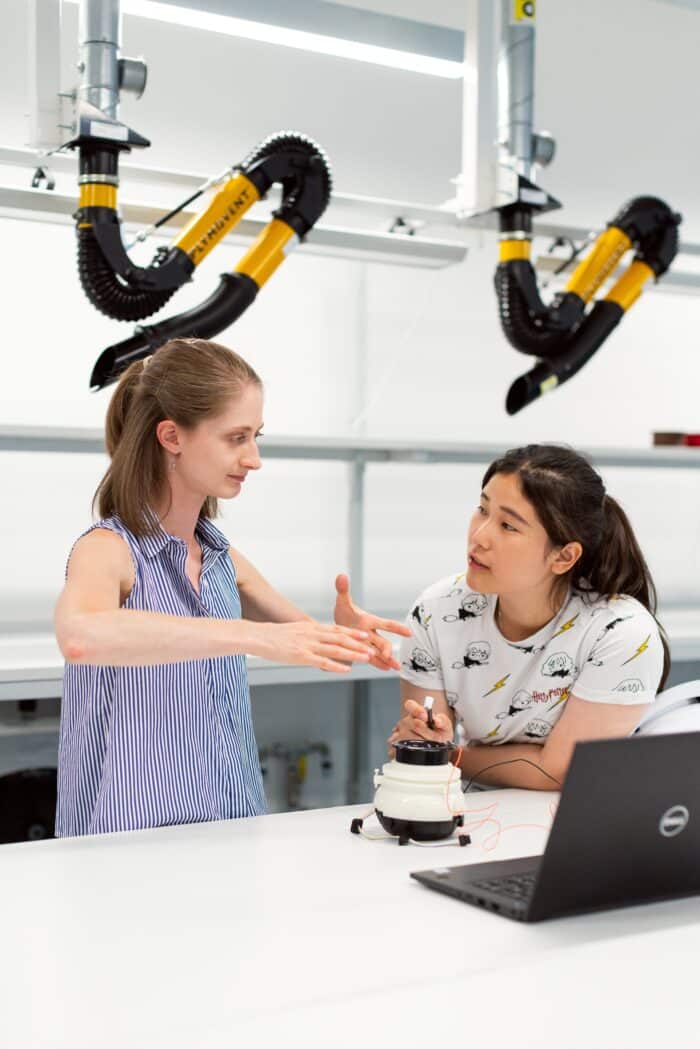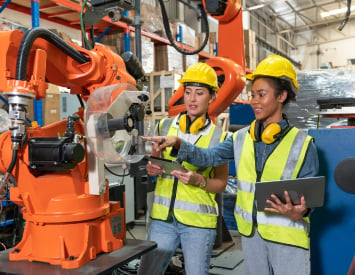There’s been a continuing influx of women studying in the field of engineering and ultimately joining the workforce and contributing to academia.
There have been numerous discussions about closing the gender gap and weeding out discrimination, and sure there’s been tremendous progress made, however, the pursuit is far from complete.
On International Women’s Day this March, we are celebrating the contributions of women to the engineering industry, education, and research, and discussing what is being done to pave the way for greater equality in the workplace.
Engineering education with women leaders at EIT
With the importance of women in engineering in mind, EIT’s valued lecturers and academics gave their input on their roles within the field of education, how diversity is changing but did not skimp on advice as well as specific challenges they have faced to build successful careers within their respective fields of engineering.
Do you think there has been a greater emergence of female engineering students, from when you studied to now?

In my opinion, it is common because during high school we cannot imagine or visualize the flexibility we have as an engineer. These are several areas and positions that a female engineer can embrace, but we don’t see it yet.

What are some exciting and interesting projects you’ve worked on as an engineer or academic?




Why do you think STEM education has been slow to diversify?

What would you say to females entering engineering for the first time as students or professionals?



Not who society wants them to look like or be like, or what their workplace wants.
Your individuality brings power to everything that you do.

How did you manage to split your life to raise a family, while working and then also being a woman training future engineers?


Why is engineering interesting for you, and what do you always take away from the field?

where you can always challenge
yourself to contribute and make a difference in people’s lives from
different perspectives like embracing social, economic, and environmental aspects.



Ways to foster support and structures for women in engineering
A main topic of discussion is the fact that even though more female students are studying for engineering qualifications, they face difficulty landing a job.. According to one study 8 out of 10 prospective employers are still skewed to pick male candidates. It means that there’s a disproportion of qualified students within engineering, yet not enough employment opportunities for women.
How to change it
Dr. Cynthia Furse is a professor in electrical and computer engineering and presented How to Be a Great Advocate for Women in Engineering at the end of 2020.
She offers five steps to offer productive and great working spaces for female engineers.
- Take a look around you
To be an advocate for your community Furse recommends that you know who is there. If a team is too homogenous you have to ask why that is.
While there is a variety of reasons for gender differences in engineering, engineers need self-awareness to ask the questions of why it is, and also look at why it is important to change it.
- Know everyone’s skills
Within a work environment, all skills have importance and younger colleagues or females are sometimes overlooked. When managers and peers understand everyone’s different skills there is an opportunity for skill transfer while also diversifying the organization. Females should also reach out to peers and mentors to ensure their experience and skills are developed and used.

- Everyone should be heard
According to Furse it often happens that women do not feel that their opinions are heard or valued. As a result, women are sometimes less likely to ask questions or express themselves and become less likely to engage in meetings, and their contributions are missed.
Fruse says that other engineers should look at colleagues who look like they want to say something during meetings and reaching out with words like “I think (insert person’s name) has a thought or question” can show support for what that person is trying to convey. Online meetings have become a good way for employees to express themselves thanks to the chatbox functionality. More women are likely to share thoughts or experiences there than verbally joining the meeting.
- Get rid of discrimination
While it’s easy to think that we try to be fair, there are always biases at play in a variety of professional and academic environments. Fruse mentions that women instructors and racial minority instructors are more critically evaluated during student evaluations at university. Engineers need to understand systematic biases and also be aware of their own.
- Stand up when facing, or witnessing discrimination
Decide what you believe is the right thing to do in any situation involving discrimination, either as a witness or the person being discriminated against. While each situation is different, it is important that it is always addressed. Fruse says that private conversations seem to work best for individual concerns, but that it’s important to know a company or institutional structure.
There is always a manager, human resources department, chair or Dean whose job it is to handle these situations and eliminate discrimination.
While it is still hard to address problems of sexism and discrimination, these conversations and actions are of great importance and needed in the workplace to allow female engineers to be part of the team but also know that they are supported when anything uncomfortable arises.
References:
Furse, C.M. (2020). How to Be a Great Advocate for Women in Engineering [Women in Engineering]. IEEE Antennas and Propagation Magazine, 62, 98-103.


